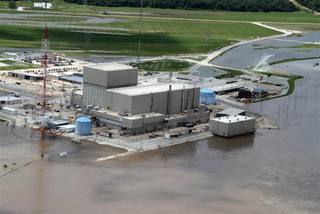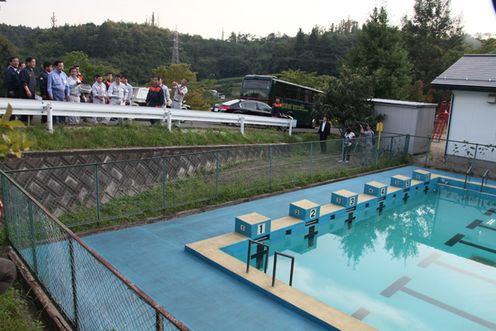For the third time Tokyo Electric Power Company stopped decontamination of radioactive water at Fukushima Daiichi. This time radiation levels on the outflow side of the massive water filter skyrocketed, instead of going down.
The idea is that water coming out of the decontamination unit would have less radiation. The opposite is happening. When TEPCo re-started the operation on Tuesday radiation levels were at 3 millisieverts per hour, by Wednesday, 22 June 2011, the levels hit 15 millisieverts per hour.
The result is that not only has decontamination efforts stopped, but TEPCo says it can not inject anymore water to cool reactors, for fear of massive flooding of contaminated water out of the reactors (even more than what is leaking out now). Already the temperatures in Reactor 3 are rising.
Japanese media says the water decontamination unit was designed in the United States. Could it be possible that the decontamination chambers are backwards? Don’t laugh, here in Idaho in the late 1990s, on the Shoshone-Bannock Reservation boil order after boil order were being issued. Finally, after tribal officials investigated their new water treatment system, it was discovered that all the filters were in backwards.

